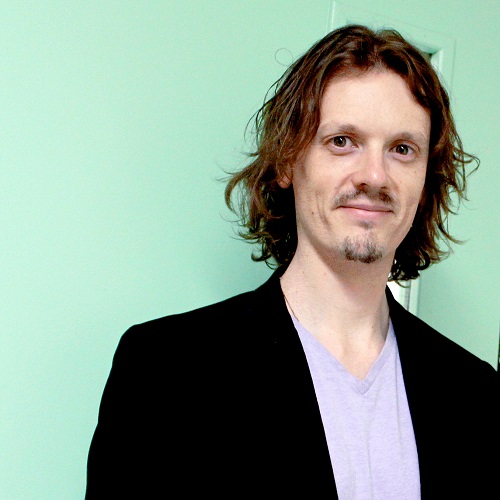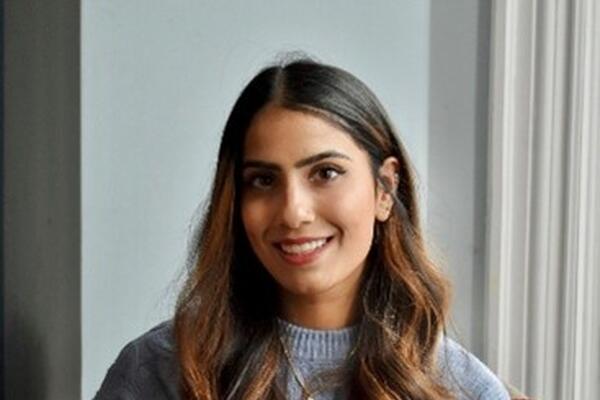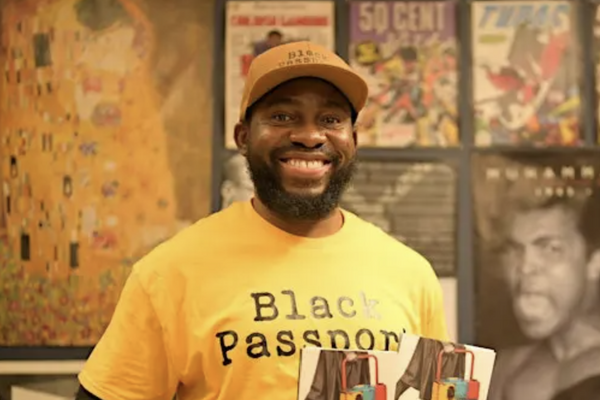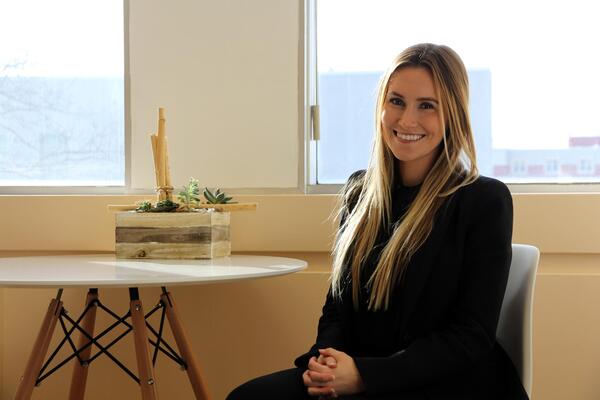 In school, you often learn how to write when you’re taught the alphabet and complete writing assignments.
In school, you often learn how to write when you’re taught the alphabet and complete writing assignments.
You learn math by completing equations.
You learn science by reading about it and, on those truly memorable school days, completing fun experiments.
But when it comes to learning how to think creatively, particularly when assigned groupwork, the lesson plan often seems to be ‘learn by doing’ – combining the learners into a groups and have them figure it out for themselves. And determining whether groups worked well and how they learned is often based on task outcomes or after-the-fact peer evaluations.
“I looked at that and thought, wouldn't it be interesting to explore the process of group-based creativity rather than the final product?” said Scott Maybee, MEd’22.
Scott took that idea and decided to enroll in masters studies at Queen’s. His interests weren’t strictly about how students creatively solve problems in classroom groups, but also about how those same skills are built in preparation for the world of work.
“Most creative decisions in organizations are made through committees, groups, and consensus-building,” he noted. “And yet group work seems to be a real challenge for educators and students, both cognitively and emotionally. But it can be useful as a learning aid and as a skill that's needed in industry, where employers increasingly look for innovation through teamwork.”
In pursuit of finding new methods of supporting collaborative learning and creativity, Scott recently completed and successfully defended his masters thesis, “Digital Ideation: Postsecondary Student Creative Thinking Experiences Using Online Peer Assessment.” As part of his research, Scott studied student groups by designing a virtual brainstorming session using an online peer assessment tool called peerScholar that helped student groups communicate, assess and construct ideas.
“I was able to develop a lot of rich narratives behind explaining creative processes that students underwent and how they communicated with each other, and how that might be developed into frameworks to understand feedback and the implications it can have on group-based idea development,” he said. “Specifically, I wanted to gain a window into how peer feedback during groupwork might influence the shaping and molding of ideas as students move through the brainstorming process by using an emerging educational technology as an electronic interface,"
Scott’s method of data collection required some fine tuning and it took a few rounds to get the clean, usable data he needed for analysis. While it delayed completion of his thesis, Scott was appreciative of the support he received both from Queen's and the peerScholar development team, and looks forward to putting his research in front of teachers and into a diverse array of academic journals.
"I discovered a variety of associations between idea development and feedback shared within groups, and found that, in general, students felt this method of brainstorming very effective, which excites me because the peerScholar technology could be adapted in any domain, anywhere there is internet access, so it really opens up seemingly limitless possibilities to support student innovation and collaboration across space and time,” he said.
It takes a team
Scott’s motivation for taking a masters program started with his teaching in higher education. He has been teaching, developing courses and coordinating at two Ontario community colleges since 2017. It was through his connections he learned more about the Queen’s Master of Education program and its reputation. Colleagues praised the program’s small class sizes and research focus.
“I wanted to get some formal education in education itself to complement my business background and practical experience,” he said. “Another goal was to complete some coursework related to qualitative and quantitative methods and extend my research experience.”
In addition to teaching, Scott has pursued a diverse set of experiences since completing his undergraduate degree, gaining extensive managerial experience in large, global organizations; becoming a business consultant, trainer, and entrepreneur; and serving his community on various boards and as a performer and marketer of community events and fundraisers.
Scott first applied for admission in December of 2019 and began studies in Fall 2020. Prior to enrolling, Scott was also able to connect with his future thesis supervisor, Dr. Ben Bolden, with whom he shared similar interests such as music. Though he may have been starting his studies at a time of significant challenge and change due to the COVID-19 pandemic, Scott felt strongly supported by his advisors and faculty.
“Queen’s has an exceptional group of faculty who allow you to experiment with your research interests,” he said. “When I completed my coursework and moved into my thesis, I was able to take a lot of the research deliverables and use them toward my thesis which really benefited me. It helped sort of stack my learning.”
His thesis provided the research exposure Scott was looking for, and he was surprised to find there was a lot of alignment in the research process with another process he was quite familiar with: the creative process.
“You have to train yourself to go in and out of different thought modalities,” he said. “Sometimes you're in a very critical mindset, and other times you're exploring and using your imagination. For the creative types who like the idea of innovating and thinking about possibilities and open-ended solutions, there's a space for that, and that can be very useful.”
One particular course which helped consolidate and underscore some of Scott’s learning was a course on transformational learning – what he calls “the most interesting, open-ended, creative course I’ve ever taken”.
“I took advantage of that by composing a completely original song based on a lot of themes and stories that I heard throughout the course,” he said. “The course really spoke to the concept of alternative assessments and what they could be, and giving students that level of autonomy. Could you deliver something that was very personal but also very scholarly at the same? It was unexpected, but nice to break free a little bit from some of the more formal processes in higher education.”
Scott’s research has helped him begin to explore some of his research questions, along with sparking a desire to look at more professional development and advanced studies in the future.
Find out more about our Master of Education (MEd).


